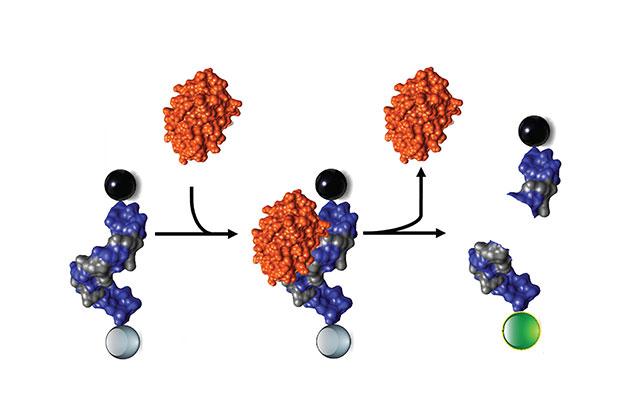Frank Hernandez, a researcher at the University of Iowa, and colleagues announced their development of the first fast, inexpensive, and noninvasive test for staph bacteria.
Present technology requires a biopsy that can take several days to reveal the presence of an infection from Staphylococcus aureus, a species of staph bacteria common in hospitals. Over 20,000 people in the United States die each year from Staphylococcus aureus infection.
The new method involves a small molecule that has one end that emits light and one end that cancels out the light. There is no light emitted as long as the molecule remains intact. If the molecule is broken into pieces the light emitting end begins to emit a specific frequency of light.
The new molecule takes advantage of the normal action of Staphylococcus aureus spread by cleaving molecular DNA.
Tests with mice and human subjects show that the new test is accurate in detecting Staphylococcus aureus and takes about one hour to make an accurate determination of infection.
Waiting one hour instead of days is predicted to save thousands of lives and millions of dollars in treatment costs for staph infections contracted in hospitals as well as in any environment.















